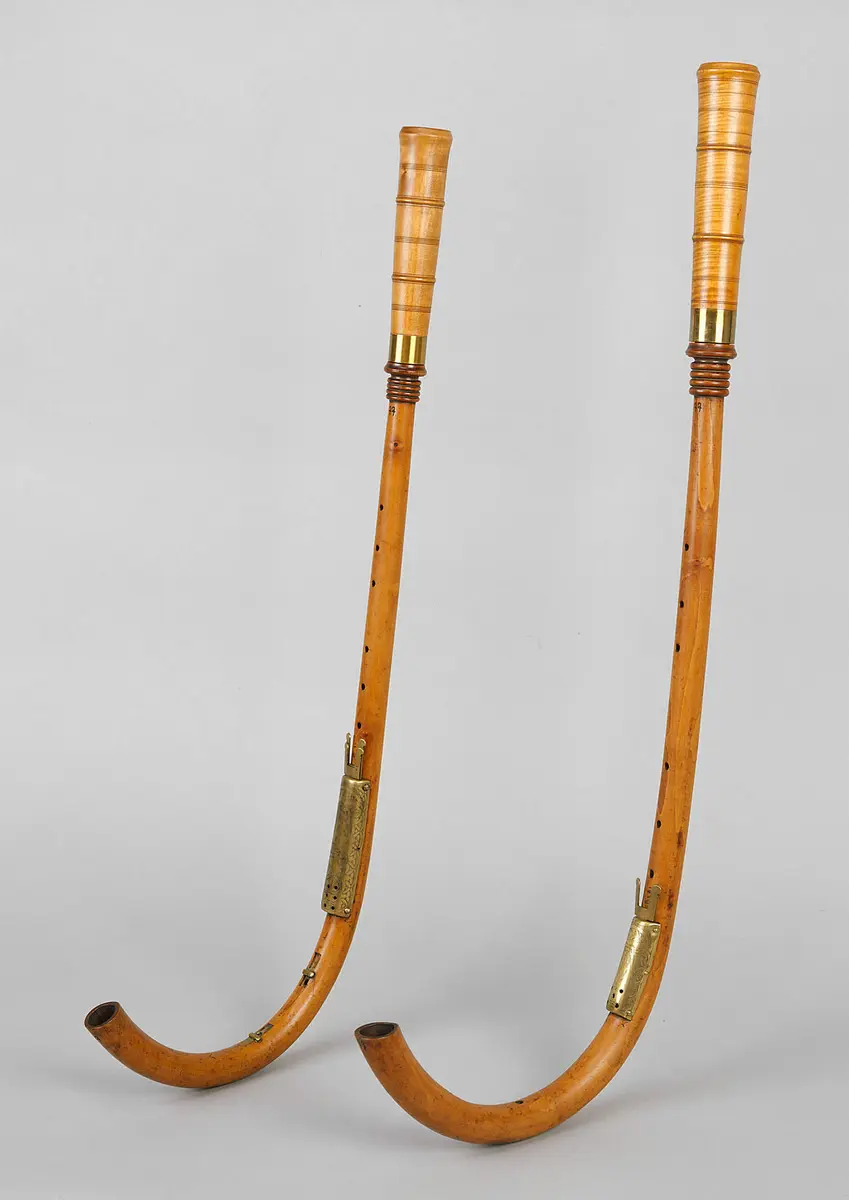Crumhorn (bass)
Ein Merkmal des Instrumentariums der Renaissancezeit ist die bunte klangliche Vielfalt, die die Instrumentengruppen auszeichnet. So erfolgt beispielsweise die Klangerzeugung beim Krummhorn durch ein Doppelrohrblatt, das allerdings vom Spieler nicht direkt angeblasen wird. Das Rohrblatt befindet sich nämlich in einer Windkapsel, die am oberen Ende des Instruments aufgesteckt wird. Durch das Anblasen entsteht in der Windkapsel ein Überdruck, durch den die beiden Lamellen des Rohrblatts in Schwingung versetzt werden. Krummhörner haben einen fast durchgehend zylindrischen Bohrungsverlauf und können nicht überblasen werden. Dadurch ist der Tonumfang relativ klein. Eine Umfangserweiterung wurde beim Bassinstrument von Jörg Wier (frühes 16. Jh.) durch die Anbringung von zwei Messingschubern erreicht, die den tiefsten Ton wahlweise um einen oder zwei Töne absenken. (rh/bd)
Literatur:Beatrix Darmstädter: Die Krummhörner und die Windkapselschalmei aus der Sammlung alter Musikinstrumente, Sammlungskataloge des Kunsthistorischen Museums Wien, Bd. 8, Wien 2015.Rudolf Hopfner: Meisterwerke der Sammlung alter Musikinstrumente, Wien 2004.
Manufacturer:
Jörg Wier (gest. vor 1563 Memmingen)
Time:
1522
Object Name:
Crumhorn (bass)
Culture:
Germany, Memmingen
Manufacturer:
Jörg Wier (gest. vor 1563 Memmingen)
Dimensions:
1000 mm x 320 mm x 70 mm
Copyright:
Kunsthistorisches Museum Wien, Sammlung alter Musikinstrumente
Invs.:
Sammlung alter Musikinstrumente, 678
